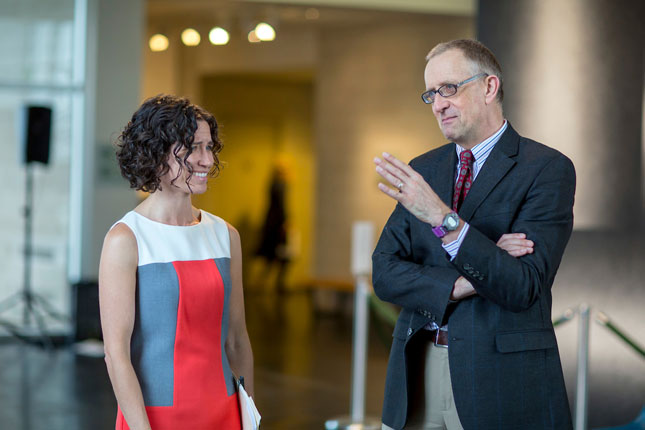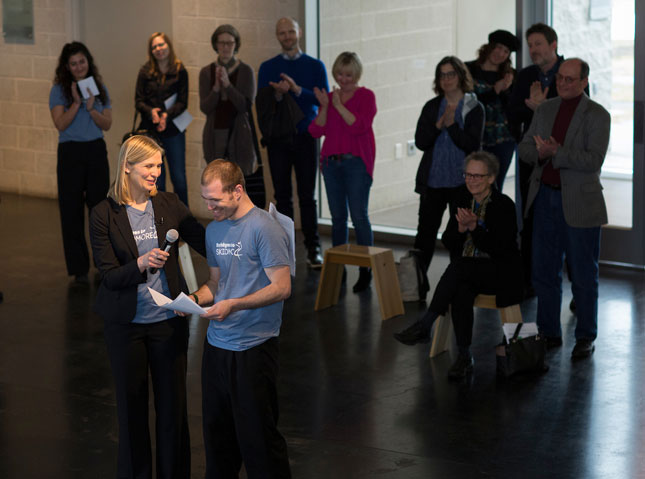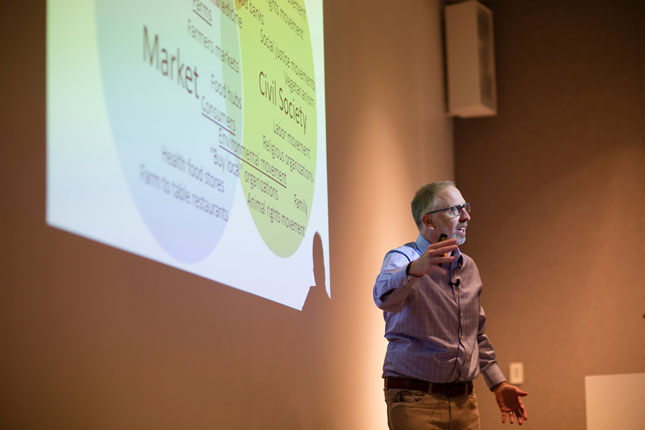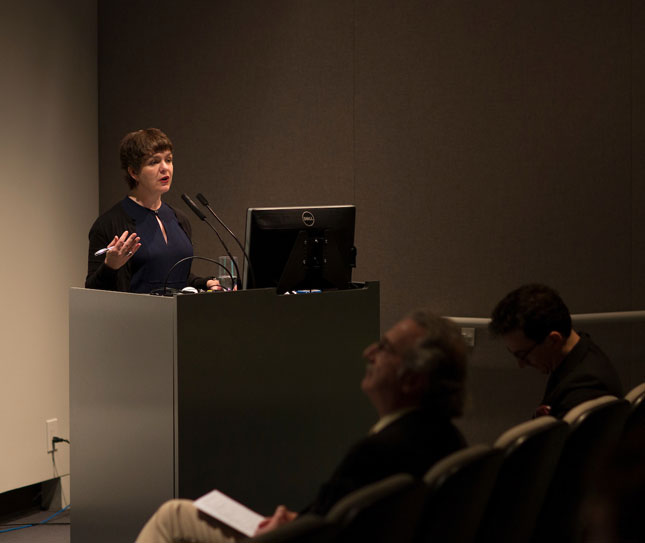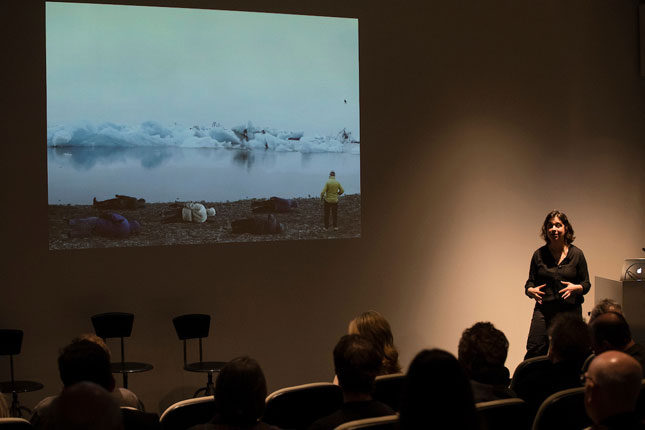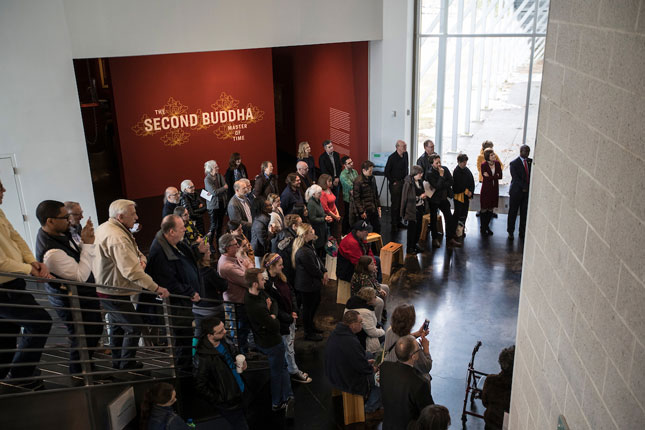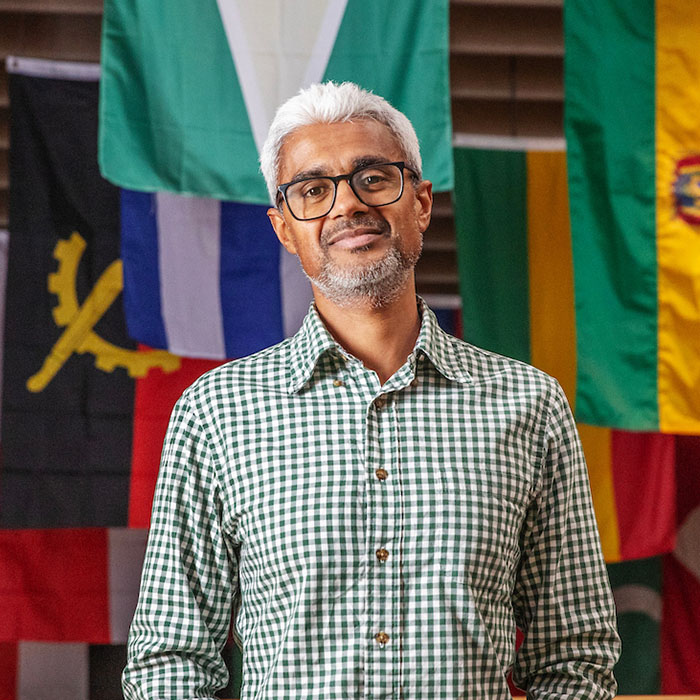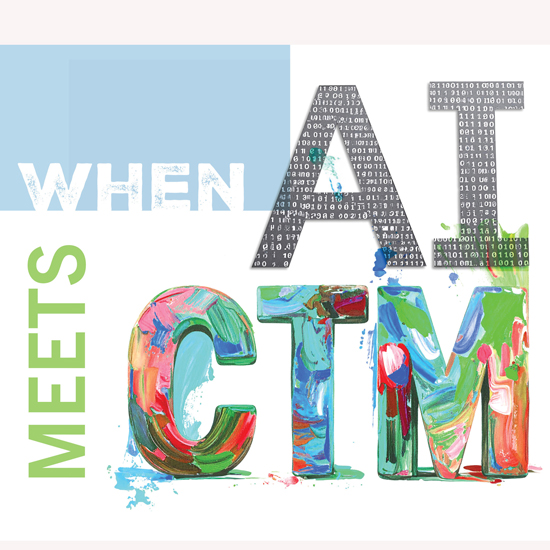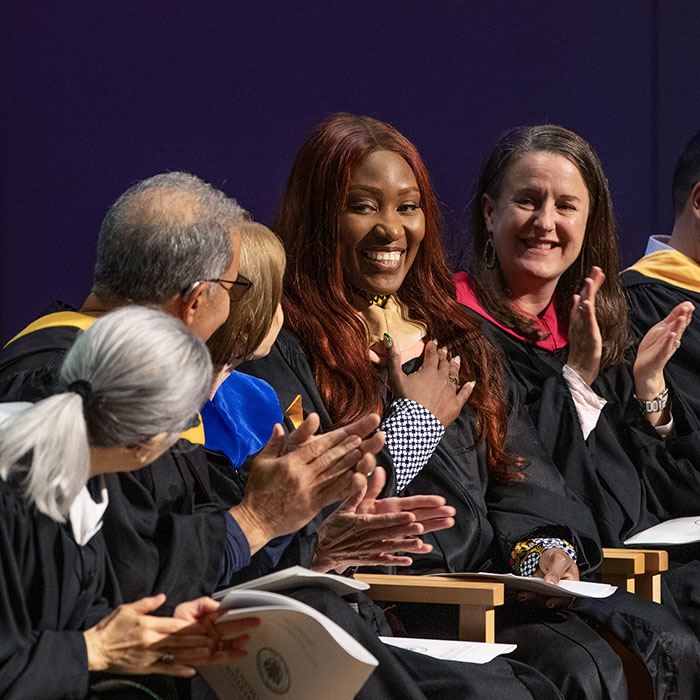What is wonder?
Wonder is an awestruck appreciation of divinity and nature.
Wonder is a mixed-up feeling in the face of the all-mixed-up.
Wonder can evoke fascination and revulsion, admiration and disgust, and delight and terror all at once.
And those who master wonder become objects of wonder themselves.
Celebrating the creative talents of Skidmore’s faculty
Mary-Jane Rubenstein, a professor of religion and of science in society at Wesleyan University, opened Skidmore’s second annual Humanistic Inquiry Symposium on March 29, discussing “scientific wonder” through the interpretations of Plato, Aristotle and Albert Einstein, among others.
The two-day symposium explored the concept of "wonder" by considering topics ranging from Buddhism and European philosophy to American literature and digital photography.
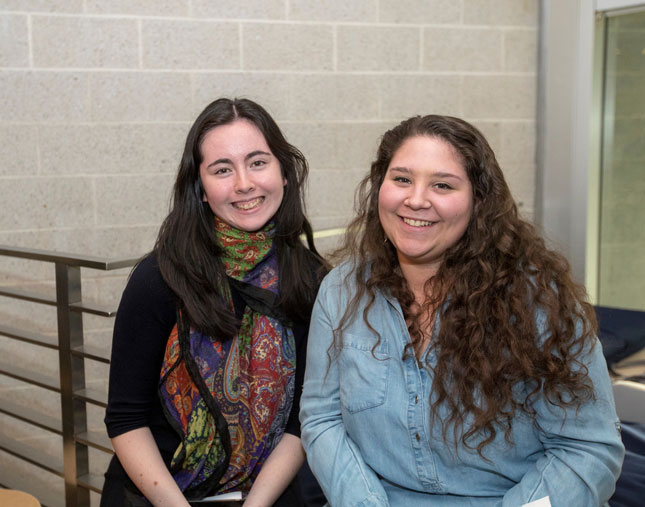
Student volunteers Nora Barry, left, and Jen Maselli worked with faculty to play an instrumental role in the symposium.
Presentations included poetry readings, museum tours, theatrical presentations and musical performances. Scholars and artists wove together the humanities, arts and sciences, offering a uniquely Skidmore academic experience.
“Plato said, ‘Wonder is the result of inquiry,’ ” Rubenstein said. Contrary to that, “Aristotle said, ‘Wonder seeks its own demise.’ ” And Einstein believed in a “cosmic religious sense” — his wonder at the universe was the product of both science and faith.
Michael Arnush, chair of the Classics Department, said the event helped to “celebrate the creative talents of Skidmore’s faculty.” Arnush co-organized the event with Barbara Black, professor of English.
One could say that wonder is what humanistic inquiry is all about. As an English professor, I’m inclined to point out the astonishing, playful malleability of the word itself, which, in its verb form, means to be curious and, as a noun, captures a state of amazement or awe.Barbara Black, professor of English
Nineteen Skidmore faculty members offered myriad perspectives on wonder through the lens of their studies. Here is a snapshot of what they had to say:
Examining how the owner of the book (a 16th-century manuscript) was identified reveals the thrill of discovery experienced by scholars working in the field of medieval and Renaissance book illumination.Michael T. Orr, Dean of the Faculty and Vice President for Academic Affairs
Participating in the wonder of dance is a way for us to explore and celebrate our differences through movement.Sarah DiPasquale, dance Department
For years, American literary scholars ignored stories about miracles. Now we’re turning back to religious wonder.Nicholas Junkerman, English Department
I see wonder in the amazing accomplishments of the sustainable food movement in the United States, the sense of reverence it has fostered for the cycle of life and the role it plays in food production.John Brueggemann, sociology
Theater’s limitations ... depend upon an embrace of wonder, a faith that the impossible can be communicated, can be staged with bodies.Lisa Jackson-Schebetta, theater
Immersive time spent with artwork compelled dance students to move past initial hesitancy and diffidence and ... wound up broadening their perspective.Jason Ohlberg, dance Department
Wonder is the moment when the unseen become visible. … Digital technology destabilizes the boundaries between the known and the unknown, the seen and unseen, the captured and the invented.Sarah Sweeney, art Department
More than wonder, the story of sugar inspires awe, or maybe fear and trembling.Sarah Goodwin, English Department
Early Buddhists felt wonder at the magical powers, telepathy and profound pedagogical prowess of Buddhas.Ryan Richard Overbey, religious studies
Wonder has had mixed reviews in the history of philosophy … wonder is the characteristic passion of the Scientific Revolution. But if we give ourselves too easily to wonder, we risk opening ourselves up to superstition or deception.Larry Jorgensen, philosophy
